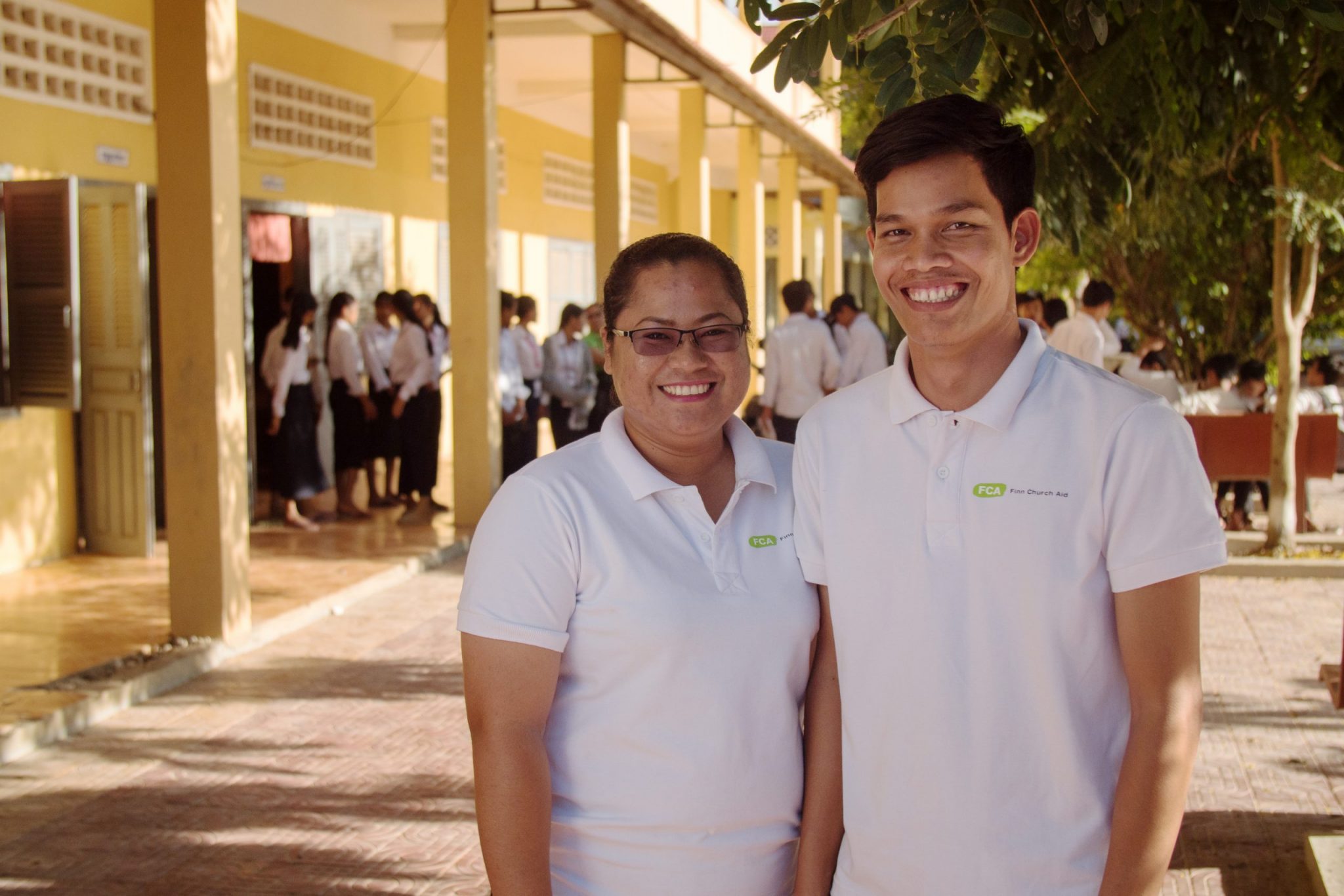CHS story of change: Finn Church Aid’s commitment to safe programme design (Commitment 2)
In the run up to the launch of the Humanitarian Accountability Report 2020, we have spoken to different organisations who have achieved certification against the Core Humanitarian Standard (CHS), to learn more about how this process is driving changes in policy and programmes. And ultimately, how it is helping aid work better for the people affected by crisis.
Here, Anna Muinonen, Senior Quality & Accountability Adviser, Africa and the Middle East, for Finn Church Aid shares insights into what they are doing to meet Commitment 2 of the CHS which states that communities and people affected by crisis have access to the humanitarian assistance they need at the right time.

Career counsellors Buntith MAK (on the right) and Marave CHHAY (on the left) at Anlongvil High School, Battambang, Cambodia. Photo: Ville Nykänen / FCA
Finn Church Aid (FCA) had already started working towards implementation of the HAP Standard, when the process on “Joint Standard Initiative” was started. With HAP, we recognised the benefits of adapting to a comprehensive framework on quality and accountability, and shifting to CHS was easy when the standard was launched. We found that the CHS would provide us with a measurable standard to assess and plan our performance holistically, and help us promoting consistent understanding on quality and accountability within FCA. We chose certification to make our working towards implementation of the CHS the more robust.
The CHS initial audit (2017) revealed that our risk assessments were mainly focusing on risks to our operation and staff, while overlooking the risks to communities. This pushed the review of our risk assessment tools and project planning guidelines. Assessment of risks and unintended negative effects to communities and the environment were incorporated. More detailed guidance on a comprehensive do no harm analysis was integrated into project planning guideline, requiring the participation on communities in identifying risks and mitigation measures whenever possible.
In 2019, FCA initiated quality and accountability self-assessments on country program level. The community surveys done allowed country programs to identify issues to follow up on, in case that the community responses to the questions on safe access to the project activities would score lower among a specific target group or a specific project.
Some good practices on risk assessments were identified during the self-assessments. Our education projects in Cambodia considered the parents’ concerns on the pupils’ safety and adapted activities accordingly. Risks and their mitigation measures were identified together with the targeted schools in a career guidance and counselling project. In Jordan, where we work in both refugee and host community contexts, focus groups were consulted during pre-and post-activity assessments about their perceived risks in accessing the education and skills training activities offered by FCA. The focus groups included people with disabilities, women, children, as well as refugee and non-refugee target groups, in a context where each group faced different risks and access challenges in attending the activities. This helped the program to get an idea of the less obvious access and safety issues that different target groups face, and to take necessary measures to ensure everyone’s safe access to the project activities.
This has not been a “quick fix”, but a process where the effectiveness of the first steps have been assessed both internally and through the external CHS audits, and further solutions developed to fill in the remaining gaps. The process is still ongoing, and getting there is driven by both carrots and sticks: Our desire to serve communities better as our carrot, and the CHS audit process as the stick.
The Humanitarian Accountability Report (HAR) 2020 will highlight eight more stories of CHS change, as well as providing an evidence-based overview of how accountable the aid sector is today. To attend the virtual HAR 2020 launch event and be one of the first to access the report’s results, sign up to the free virtual Global CHS Exchange, 6-8 October 2020.
